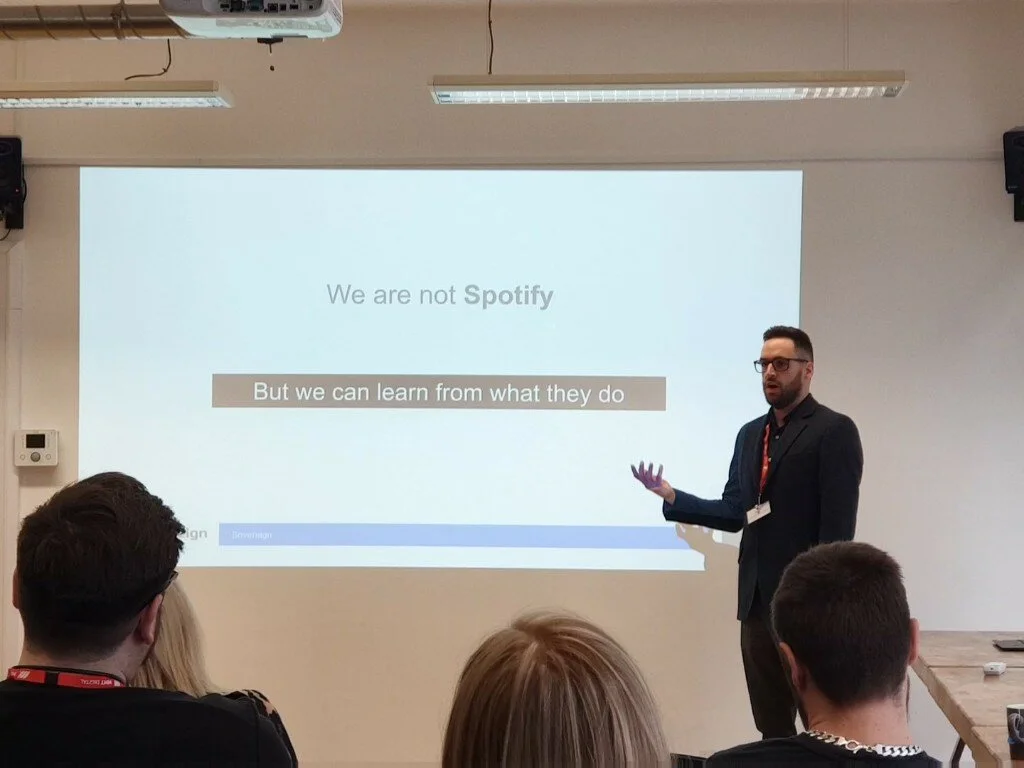By Janus Boye
“A significant portion of our cultural challenge came from a lack of sharing and insight into our plan.”
Last week we held a breakfast briefing in London on the topic of Driving Digital Transformation with Legacy Technical Debt and culture change was mentioned several times as the biggest challenge, but can you fix culture?
Focusing on the business, creating trust in the teams via transparency and empowering teams to actively participate seemed to be the winning recipe in the two customer stories from Sovereign Housing and Vodafone. Co-founder of MMT Digital James Cannings highlighted the changes required and recommended building out your agile processes from the bottom up, but with support from the top.
We are not Spotify
Music streaming company Spotify has a widely publicised world-famous organisational structure. Instead of hierarchical top-down management structures filled with bureaucracy, Spotify uses squads, tribes, alliances and guilds to run its business and is famous for its work on scaling agile.
That sounds great, right? As some of our members have already remarked in several peer group meetings, even Spotify is having difficulties with its company culture, but as was said on stage in London at the breakfast briefing, you can still learn from what they do.
Sam Dart is Head of Digital Technology Services at Sovereign Housing Association and he shared insights on how we can learn from Spotify even if our organisation is very different.
It’s a mindset change, and even if you are not a tech music start-up in Stockholm, you can still:
Use technology as an enabler
Make decisions based on insights
Avoid ‘who shouts loudest’ prioritisation
Create products not just projects
Perhaps most importantly if you are in a large, global, complex and established organisation, the advice was to work with a technology partner. Work with your trusted partner to translate the concepts into your context and do take the time to understand what new technology and concepts mean for your organisation, the products you can create and customers you serve.
Build reliable data-driven insights
It’s natural to be anxious about change, but it gets worse when too many decisions are driven by anecdotal evidence. A speaker called the usual resistance the ‘Organisational Immune System Response’.
Your ability to have constructive informed conversations, to experiment and to challenge conventional thinking needs data. Often data is seen as a ‘beast’ and organisations are afraid of it.
Be prepared to face resistance, be brave and lead from the front was some of the best practice advice for transformation from the speakers. Personally, I really liked the recommendation to either be able to provide reliable empirical evidence or fail fast.
Going from monolith to microservices
Technical debt is a f reality for most non-digitally native organisations and the main blocker for transformation.
Reducing the time required to build new infrastructures, reducing the delivery cycles and automating your releases are required to become more productive. It requires DevOps and Engineering best practices and we learned from the journey of customers, who have made dramatic improvements in less than 2 years.
James Cannings from MMT Digital shared insights on how to tackle legacy technical debt
James Cannings from MMT spoke about the need to have a strong, flexible vision for chipping away at your enterprise monolith. He also covered how you create an innovative, agile engineering team and enterprise as a whole.
His advice was to avoid building out a service layer in isolation or porting too much legacy code and business logic. Instead he recommended building out in vertical slices and A/B testing to phase out the legacy and prove the case for the new.
Learn more about digital transformation
Do feel free to share a comment below to contribute to the conversation!
Our friends at MMT Digital kindly hosted the breakfast briefing and have already shared the top five insights for driving digital transformation with legacy tech debt from the event.
We’ve previously written about the topic of organisational change and shared examples of what it takes. Here are a few popular posts on the topic:
When talking about change, there’s also a seismic shift in the tech trends. Lars Birkholm Petersen from Uniform covers performance, JAMstack and more in this post: What Got You Here, Won’t Get You There.
If you are interested in getting out from behind your screen, do consider joining one of our upcoming conferences or peer groups.


